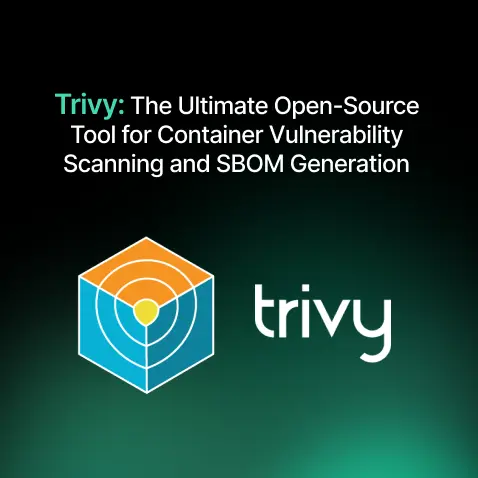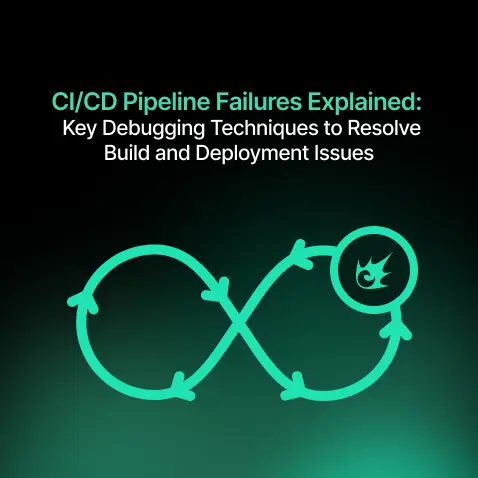The Importance of DevOps in Today’s Digital Age
- Ankush Madaan
- Blog
About

Industries
- Auto Scaling, AWS, EKS, Kubernetes, Terraform
Share Via
Introduction
The relentless pace of digitalisation has made it imperative for organisations to maintain a high speed of innovation while ensuring quality. Development Operations, or DevOps, has emerged as a key strategy to meet this need. Born from the necessity of improving collaboration between development and operations teams, DevOps has now become an integral part of the business process. But what does DevOps mean in 2023, and how did we get here? How will it continue to evolve in the future? In this comprehensive analysis, we delve into the past, present, and future of DevOps to answer these questions and more.
The Emergence of DevOps: Looking Back to 2018
Back in 2018, DevOps was still a growing concept, with organisations beginning to understand the potential of this new approach. DevOps aimed to bridge the gap between the development (Dev) and operations (Ops) teams to streamline the process of software development and delivery.
Collaboration and Communication
In 2018, the concept of breaking down ‘silos’ and encouraging collaboration between different teams was starting to gain momentum. However, many businesses struggled with this cultural shift. Tools for facilitating real-time collaboration and communication were still in their early stages, and fostering an environment of shared responsibility was a challenge.
DevOps Tools and Cloud Adoption
The DevOps tools landscape in 2018 was still maturing. While popular tools like Jenkins, Docker, and Kubernetes had been adopted, seamless integration between these tools was not yet streamlined. Additionally, while the potential of cloud computing was recognized, many organizations were only beginning to explore hybrid cloud models. Full-scale cloud adoption was far from the norm.
DevOps in 2023: The Age of Integration and Collaboration
Fast forward to 2023, and it is clear that DevOps has grown from a budding concept to a vital business strategy.What was once a nascent idea, primarily within the tech industry’s inner circles, has now become an indispensable business strategy embraced by organizations globally. This evolution is not just about merging development and operations; it’s a testament to the power of integration and collaboration in the digital age. Companies have recognized that to stay competitive, they need to break down silos, accelerate delivery, and ensure quality simultaneously. DevOps, with its emphasis on continuous integration, automated testing, and rapid deployment, has become the blueprint for achieving this. The strategy has transcended beyond just software development and IT operations; it’s now a cultural shift that prioritizes agility, transparency, and shared responsibility. Businesses that have adopted this approach are reaping benefits in the form of faster time-to-market, enhanced customer experiences, and improved operational efficiency. In essence, by 2023, DevOps is no longer a ‘nice-to-have’ but a ‘must-have’, symbolising the era of seamless integration and heightened collaboration in the corporate world.
Enhanced Collaboration
Today’s tools for communication and collaboration are robust and sophisticated, allowing for real-time collaboration and streamlined problem-solving. Platforms like Slack, Microsoft Teams, and GitHub have become commonplace, bringing teams together and making it easier to share information and resolve issues.
A Rich Landscape of DevOps Tools
The DevOps tools ecosystem has expanded significantly, with new tools like Terraform and Ansible joining the fray. Additionally, the integration of these tools has improved considerably, making it easier to set up and run DevOps pipelines. DevOps as a Service has emerged, enabling organizations to access pre-configured DevOps toolchains, reducing the setup time and complexity.
Cloud-Native DevOps
Cloud adoption has surged in the last five years, and most organizations now operate with a ‘cloud-first’ mentality. As a result, DevOps strategies have become closely intertwined with cloud-native architectures. Concepts such as containers and serverless computing are now central to DevOps practices, enabling even faster and more efficient software delivery.
DevOps and Business Value
DevOps has proven to be more than just a method for improving software delivery. It’s a strategy that delivers tangible business value. The enhanced speed of delivery means faster time-to-market, giving businesses a competitive edge. Improved collaboration results in fewer errors and higher quality software. Continuous feedback and iterative improvements lead to products that closely align with customer needs and expectations.
The Future of DevOps: Beyond 2023
Looking ahead, DevOps is poised to continue its evolution, shaped by technology trends and business needs. Let’s explore some of these future trends.
Artificial Intelligence and Machine Learning in DevOps
Artificial Intelligence (AI) and Machine Learning (ML) are set to play an increasingly significant role in DevOps. AI and ML can automate complex tasks, predict problems before they occur, and provide actionable insights to optimize DevOps processes. This trend is giving rise to AIOps, where AI is integrated with IT operations for enhanced automation and predictive analytics.
Maturing DevSecOps
While the integration of security in DevOps – known as DevSecOps – has begun gaining traction, it is expected to mature and become standard practice in the future. Security considerations will be included at every stage of the development lifecycle, enabling the proactive identification and resolution of vulnerabilities and ensuring robust, secure software.
Serverless Architectures
Serverless architectures are anticipated to become more popular in the DevOps landscape. By eliminating the need for server management, developers can focus solely on writing code, further accelerating software delivery. This approach also offers cost efficiency as you only pay for the compute time you consume.
Platform engineering
Platform engineering is becoming a cornerstone in the evolving DevOps landscape. It focuses on creating standardized, efficient environments for developers, reducing the inconsistencies and challenges often faced in diverse settings. A key feature is the development of self-service platforms, granting developers the autonomy to provision resources and manage services, thereby expediting processes. Central to platform engineering is the concept of Infrastructure as Code (IaC). This ensures that infrastructure remains consistent, is version-controlled, and can be managed similarly to application code. This unified platform approach enhances collaboration by bridging the divides between development, operations, and security teams. Additionally, platform engineering emphasizes adaptability, ensuring that as new technologies emerge, they can be seamlessly integrated into the existing framework. In essence, platform engineering is set to play a pivotal role in future-proofing DevOps, ensuring agility, and facilitating the integration of innovative technologies.
Conclusion
The evolution of DevOps from its early stages in 2018 to its pivotal role in 2023 underlines its importance in today’s digital age. As we look towards the future, DevOps is set to continue its trajectory of growth and evolution, with AI integration, a stronger emphasis on security, and an increase in serverless architectures. Organizations that can effectively leverage these developments will be well-positioned to navigate the digital landscape of the future with agility, speed, and resilience. With continuous innovation and improvement at its core, DevOps will continue to play a vital role in enabling businesses to thrive in an increasingly digital world.
Refrence : How DevOps can help Startups
Frequently asked questions
DevOps is a set of practices that combines software development (Dev) and IT operations (Ops) to enhance collaboration, automate processes, and improve the efficiency of software delivery and infrastructure management.
DevOps enables faster software development cycles, higher quality products, and quicker responses to customer needs, which is crucial in today’s fast-paced, competitive digital environment.
DevOps fosters collaboration between development and operations teams by encouraging shared responsibilities, communication, and a culture of continuous improvement, breaking down silos.
Key benefits include faster time to market, improved software quality, increased efficiency through automation, enhanced customer satisfaction, and better scalability and security of applications.
DevOps relies heavily on automation tools for testing, deployment, and monitoring, reducing manual intervention, minimizing errors, and speeding up the development process.
CI/CD pipelines automate the integration and delivery of code, allowing teams to test and deploy frequently, ensuring faster and more reliable releases with fewer bugs.
By promoting automated testing, continuous monitoring, and collaboration between teams, DevOps improves the detection of issues early in the development process, ensuring higher-quality releases.
Challenges include cultural resistance to change, lack of proper skills, integration difficulties with legacy systems, and ensuring proper tooling for automation and monitoring.
DevOps emphasizes automation, continuous monitoring, and infrastructure as code, which makes it easier to scale applications and systems in a consistent, efficient manner as business needs grow.
The future of DevOps includes greater integration of artificial intelligence (AI), machine learning, and further advancements in automation and containerization, making software delivery even more agile and efficient.
Related Posts

Comprehensive Guide to HTTP Errors in DevOps: Causes, Scenarios, and Troubleshooting Steps
- Blog

Trivy: The Ultimate Open-Source Tool for Container Vulnerability Scanning and SBOM Generation
- Blog

Prometheus and Grafana Explained: Monitoring and Visualizing Kubernetes Metrics Like a Pro
- Blog

CI/CD Pipeline Failures Explained: Key Debugging Techniques to Resolve Build and Deployment Issues
- Blog

DevSecOps in Action: A Complete Guide to Secure CI/CD Workflows
- Blog

AWS WAF Explained: Protect Your APIs with Smart Rate Limiting
- Blog

